
(Reuters photo)
AP - Heavily armed soldiers trudge through the fetid streets of Sadr City, gagging from the stench of open sewage, eyes warily scanning ahead for trouble. Suddenly, a middle-aged man approaches — and begs for a job.
“We are a peaceful people,” the man tells the interpreter. “We only want to work and feed our families. Now is the time for people to come and offer us jobs.”
The Americans shrug helplessly — they’ve heard these complaints before — but tell him help is on its way.
U.S. soldiers rolled into Sadr City on March 4 primed and pumped for a fight with the notorious Mahdi Army militia of radical anti-U.S. cleric Muqtada al-Sadr.
Instead of snipers and roadside bombs, the Americans found an even bigger problem — a vast, crowded slum where years of misery and government neglect have created conditions for the militias to thrive.
U.S. soldiers worry that unless things improve — and soon — the people of Sadr City will quickly tire of the foreigners’ presence.
“There are a lot of days when I’m like, ’It’s going to take a miracle to make this work,”’ said 1st Lt. Jacob Czekanski of the 1st Battalion, 23rd Infantry Regiment as he stared at a soccer field surrounded by trash. “We will always be viewed as outsiders here.”
In a capital where public services barely function and five straight hours of electricity is cause for celebration, Sadr City stands out.
An estimated 2.5 million people, nearly all of them Shiites, live in the northeastern Baghdad community. Many of them lack running water and proper sewerage. Hundreds of thousands have no jobs and subsist on monthly government food rations, a holdover from the international sanctions of the Saddam Hussein era.
Streets in some parts of Sadr City run black with sludge. Damaged power lines provide at best only four hours of electricity a day.
Many U.S. soldiers were unprepared for what they found.
During a patrol last week, American troops brushed flies from their faces as they drove through rotting heaps of refuse and excrement piled outside houses. One soldier opened the door to his Humvee and vomited.
Improving the quality of life of Iraqis — including those in Sadr City — is part of the U.S. strategy, articulated by the new U.S. commander Gen. David Petraeus. Once areas have been rid of insurgents, criminals and death squads, the Americans hope to pump in cash to encourage small businesses and revive the local economy.
The plan is for the Americans and their Iraqi counterparts to remain in the neighborhoods to keep the militants from returning.
But first comes security: Economic improvement will have to wait until the streets are safe.
“This is their lifestyle. This is how they’ve been doing it for hundreds of years. And they’re not going to change overnight,” said Marine Capt. Seth Crawford, who works in Sadr City. “That’s what works for them right now.”
Now that they’ve seen how the people of Sadr City live, some soldiers say they understand the appeal of the militias, which provided some services that the government could not.
Al-Sadr’s militia not only guarded against Sunni gunmen but provided rudimentary health care and other services for impoverished Shiites.
With new understanding has come new tactics. Instead of kicking in doors, soldiers knock first. Aggressive behavior could provoke an uprising, soldiers say.
“It’s not so much ideology that the people flock to here, it’s whoever can provide them with their basic needs,” Czekanski said.
For now, the atmosphere in the neighborhood is not openly hostile. Posters of al-Sadr, who led two uprisings against coalition forces in 2004, no longer appear on billboards and walls.
Even some of the anti-American graffiti spray-painted on buildings had been covered.
How long this will last is anyone’s guess.
In recent days, Iraqi interpreters who work with the Americans have been threatened by residents who call them “snitches” and “traitors.” Children who last week flocked to soldiers hoping for candy now shout profanities as they pass.
“There’s an appearance of peace here,” said Maj. Joe West, who trains Iraqi police in Sadr City. “But living in peace with Tony Soprano isn’t peaceful at all.”
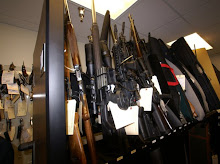
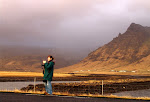
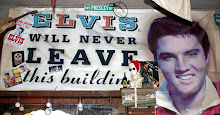


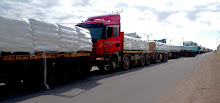
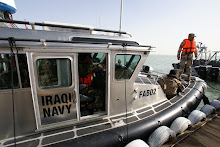

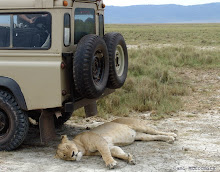
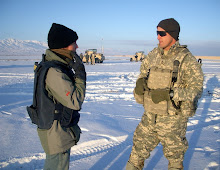



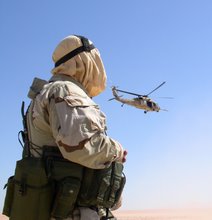
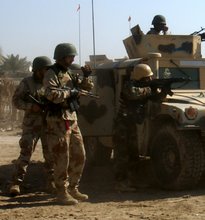
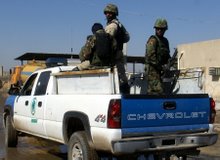
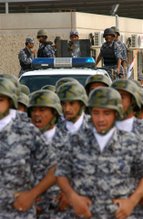
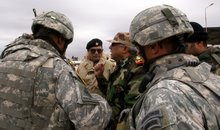
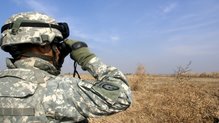
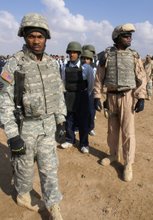


No comments:
Post a Comment